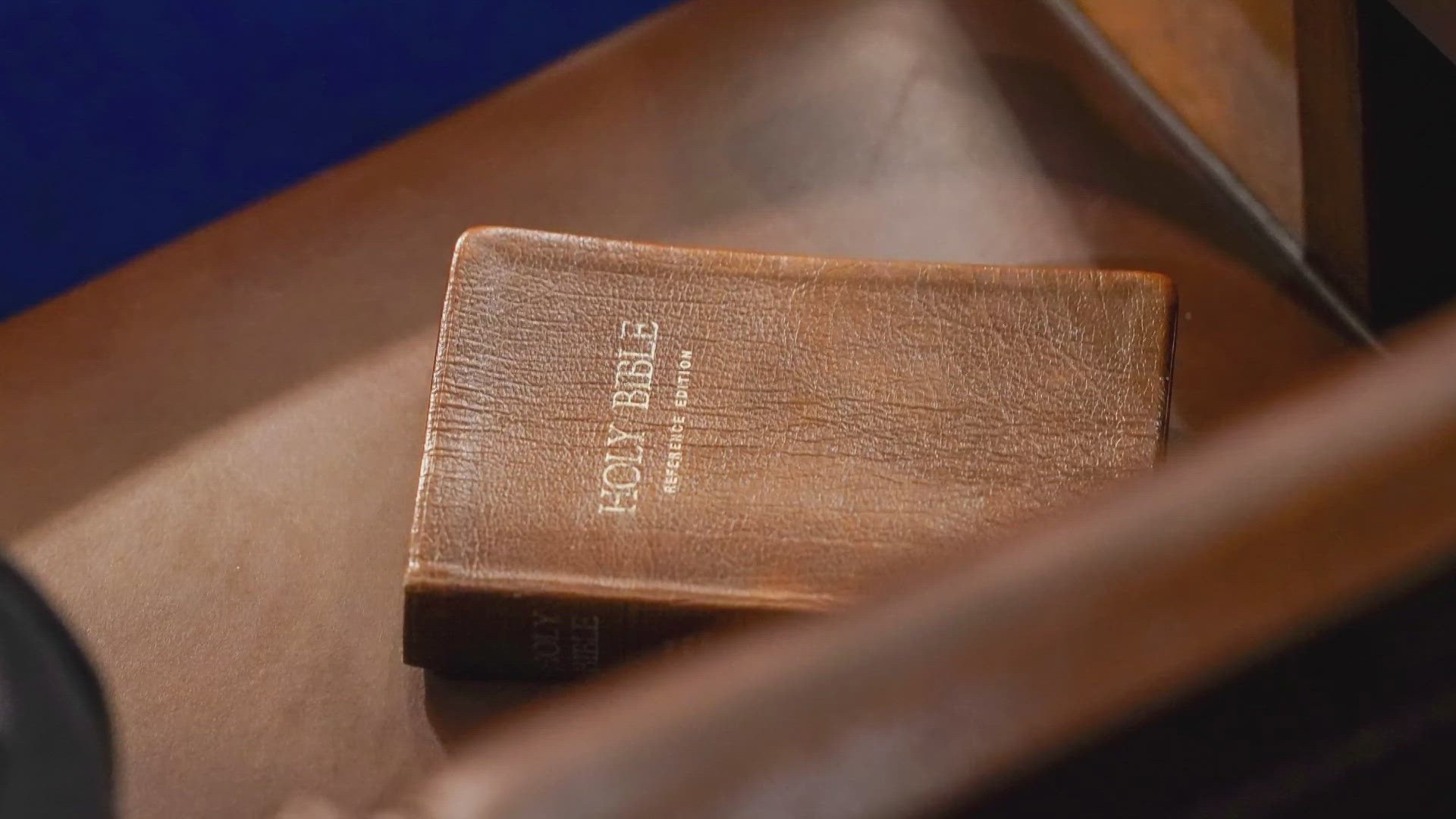Oklahoma’s superintendent of schools, Ryan Walters, has mandated that districts statewide incorporate the Bible “as an instructional support” in the curriculum for grades 5 through 12, emphasizing its importance as a historical document. This directive, announced on Thursday, has sparked significant controversy and opposition from various quarters.

Mandate Sparks Immediate Backlash
In his directive, Walters emphasized the compulsory nature of this mandate, stating, “Adherence to this mandate is compulsory,” and indicated that further instructions on monitoring and reporting for the 2024/25 school year would be forthcoming. This announcement came during the monthly state board of education meeting, where Walters was flanked by a stack of five books, including three versions of the Bible.
Walters’ announcement followed a recent Oklahoma Supreme Court ruling that invalidated a contract between the Statewide Virtual School Charter Board and St. Isidore of Seville Catholic Virtual School. The court found that the contract for what would have been the nation’s first religious-based charter school violated state and federal laws. Walters, who was not a party to the case, criticized the court’s decision and subsequently issued his directive.
Legal and Historical Context
Walters justified his directive by citing broad authority under Title 70 of the Oklahoma Statutes, which governs state education. This statute allows school districts to determine their curriculum, subject to legal provisions. Walters claimed his directive aligns with the state educational standards updated in May 2019. The Oklahoma Attorney General’s office supported this stance, noting that state law already allows Bibles in the classroom for instructional purposes.
In his letter, Walters described the Bible as “one of the most historically significant books and a cornerstone of Western civilization,” alongside the Ten Commandments. He argued that these texts should be referenced in studies of history, civilization, ethics, and comparative religion due to their substantial influence on the nation’s founders and the Constitution. To ensure uniformity, the state education department may supply teaching materials for Bible instruction.
Diverse Reactions from Lawmakers and Organizations
The directive has faced strong criticism, particularly from groups advocating for the separation of church and state. The Oklahoma chapter of the Council on American-Islamic Relations (CAIR-OK) expressed strong opposition. State Rep. Mickey Dollens, a Democrat from Oklahoma City, also criticized the mandate, suggesting Walters should focus on improving the state’s low education ranking rather than “evangelizing” students. Democratic Reps. Melissa Provenzano and John Waldron advised school districts to review existing state laws regarding religious instruction carefully.
:max_bytes(150000):strip_icc():focal(749x0:751x2)/bible-with-pencil-and-paper-062824-35f7559a4472419db546f70022abc8b6.jpg)
Rachel Laser, president and CEO of Americans United for Separation of Church and State, condemned Walters’ order, calling it “textbook Christian Nationalism.” She accused Walters of abusing his public office power to impose his religious beliefs on children. As the state prepares to implement this directive, the debate over the appropriate role of religious texts in public education is set to continue, with various stakeholders closely watching the developments.
